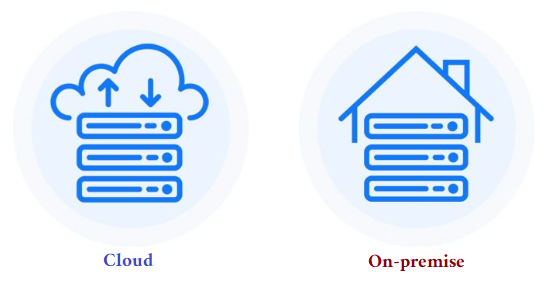Even it is the age of cloud service, but it is still worth to understand more before moving to cloud.
Is Cloud always the best answer
It is depending on whether it is needed to have one physical server in your office. For business tight on space and/or without IT resources, leasing a server or service(s) on the cloud makes sense. However, there are limits to what you can do with a cloud-based service.
Cloud servers are ideal for when businesses are first starting out. However, cloud costs grow as a business adds headcount. Monthly costs accumulate as data grows. Eventually, business sense says to bring some server infrastructure in-house. If you’re at this point, you’ll want to scale up not scale out with your infrastructure, which means using a combined, hybrid approach to your data architecture.
If you decide that you definitely need the server on premises, then you should choose whether to assemble a server in-house or to purchase a pre-built.
Pros
- Quick start without any initial investment
- Test / Pilot with comparative low cost (agile / innovation)
- Best option for organization without local IT department
- Flexibility of expansion or sudden increase of system resources
Cons
- Vendor lock-in
- Security concerns especially public cloud
- Large volume users (CPU/ Storage) will find the bill more expensive than self-owned.

Build Your Own Server VS Buy from Vendors
Building and buying both lead their own comparative advantages and disadvantages. It is important to have a full comparison before any investments.
| Building Your Own Server | Buying Pre-built Server |
Pros
Cons
|
Pros
Cons
|
Personally, I have worked in both types of environments before. Currently, I am the technical lead of 4 different teams in different areas like Information Security, Data Science and AI. All of them are mainly using DIY servers and some servers are running on a new motherboard in a chassis and power supply with nearly a decade without a single problem.
For DIYers, the most important part of self-built server is the Power-supply unit. It is important to buy the best quality Power-supply unit to guarantee the stability. For buyer of pre-built server, it is vital for them to choose a big vendor supplying products with more hardware options to have the choice of future scale-up upgrade.
In my opinion, there are so many choices in the DIY market and Supermicro is the best vendor providing all sorts of items. Other Taiwanese brand like ASUS, ASRock, , Gigabyte and Tyan are also reliable. For the most essential item – the power supply, there are several brands to remember such as Delta, ECS, FSP and Supermicro. For pre-built server, I would like to put HP as the first choice of PC server (Linux/Windows) and IBM Power as the best Unix and Linux server. If you would like to have more choices on PC server, it is possible to pick up Supermicro server (with pre-built server as any brands) and Fujitsu.
Before the end of this article, there is another essential point to address – Information Security. If you are using public cloud, it is important to understand what types of security solution being applied to your server / services. For using your own on-premise infrastructure, firewall and/or anti-virus investment should be a must. Other security software like email gateway or application gateway should be in the list of consideration.
